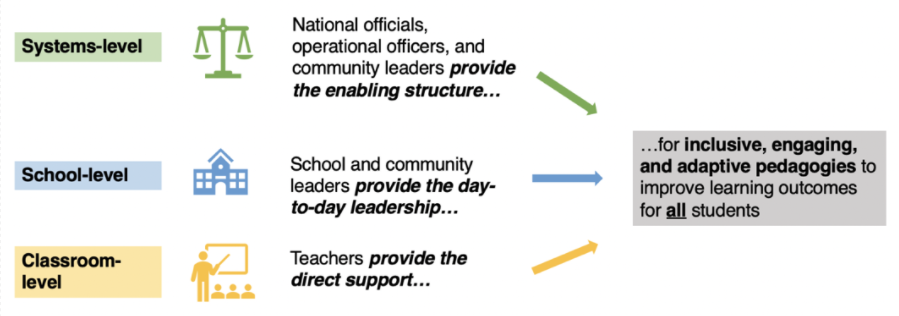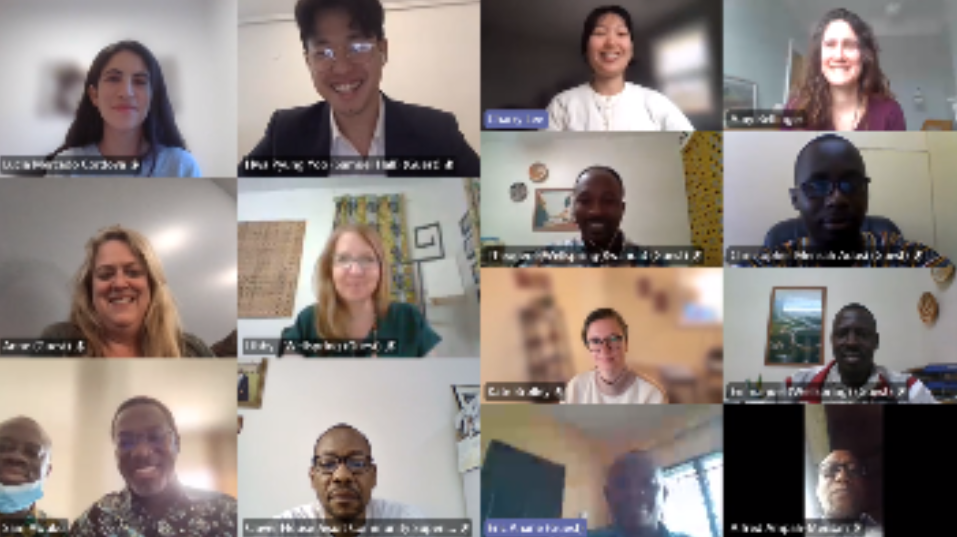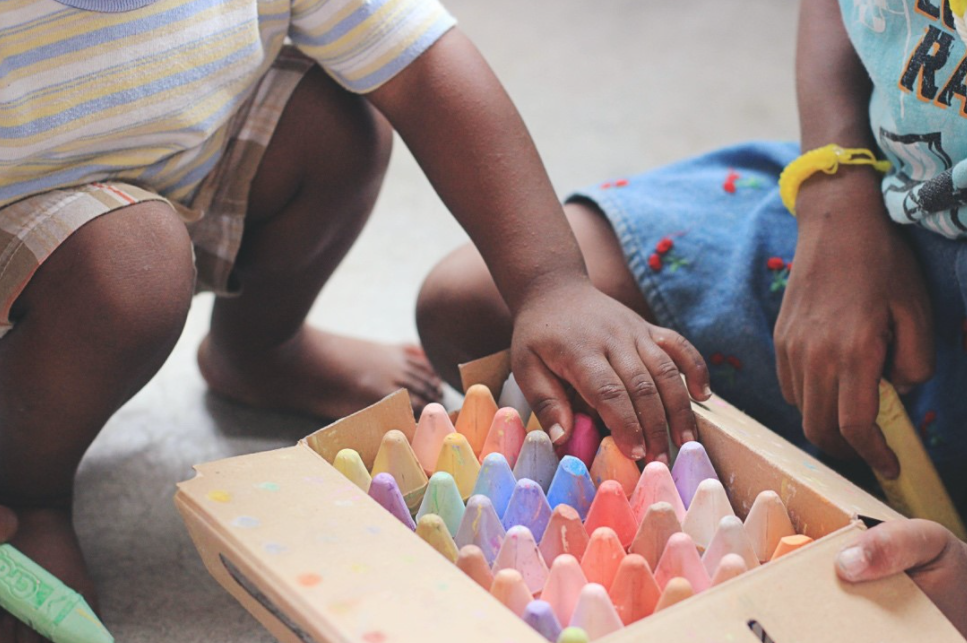In partnership with country partners in Ghana, Kenya, and Rwanda, we are excited to announce the launch of our Innovative Pedagogies Project (IPP), thanks to funding from the LEGO Foundation. We are collaborating with the Institute for Educational Planning and Administration at the University of Cape Coast, Aga Khan Foundation, A Partner in Education, and The Wellspring Foundation to create awareness, political will, and action around adopting inclusive, engaging, adaptive, and playful pedagogies and breadth of skills.
How it started
The COVID-19 pandemic disrupted the education of more than 90% of the world’s students and intensified the pre-existing global learning crisis. In response, the Education Commission spearheaded the Save Our Future campaign with 14 major education players and more than 200 global NGO partners – a global movement of diverse voices united in calling for the prioritization of education as a key solution for the long-term recovery. The Save Our Future White Paper set out recommendations for transformative action and calls for “making education inclusive, engaging, and adaptive.”
Why is this needed?
The 2030 deadline to meet the SDG 4 target – ensuring inclusive and equitable quality education for all – is unlikely to be met, as it is estimated that half of the world’s children and youth will not achieve even the most basic skills. Many children are not learning because the teaching they receive is not engaging or aligned to their needs. This is especially true for the 93 million children under the age of 14 (5.1 percent of all children worldwide) with a moderate or severe disability (given the lack of accurate data, this estimate is likely low).
Urgent and intentional action is needed to systematically measure student learning so teachers can meet them where they are and adapt to their needs. There are several frameworks and rubrics available that assess pedagogy – however, these don’t tend to assess inclusion. Through this project, and with the support of Inclusive Development Partners (IDP), we are co-creating a practical, diagnostic tool for national stakeholders to assess existing pedagogies within primary education systems and raise awareness, political will, and action towards developing a breadth of skills and adopting inclusive, engaging, adaptive, and playful pedagogies.
What do we mean by inclusive, engaging, adaptive (IEA) and playful pedagogies?
All children are active learners. They have the right to learn – including learners with disabilities, girls and boys, ethnic and religious minorities, and other marginalized groups within countries. We want to include them all, so they have equal access to education and teaching in a manner that works for all of them. When teaching is focused on including and engaging ALL children, learning for ALL children improves – not just for marginalized groups.
Learning should also be engaging and fun. Play has been recognized as an important way for children to learn because play is natural. Learning through play can improve intellectual, social, emotional, and physical development. We aim for IEA pedagogies to be used across all subjects and incorporate a breadth of skills and social-emotional learning.
Rather than a one-size-fits-all approach, instruction should be tailored to each student’s developmental needs. Teaching should thus be adapted to the needs of individual students. Teachers can respond to learners’ distinct learning needs by focusing on providing information to them in multiple ways.
During the project, we will be utilizing the Universal Design for Learning (UDL) approach, an evidence-based inclusive pedagogical approach that merges both neuroscience and learning sciences. All children learn differently, and pedagogy must align with these differences.
With IEA pedagogy, learning is accessible and welcoming to all learners. For IEA pedagogies to succeed, various levels of the education system need to support and embrace them, as policy changes do not always equate to transformed pedagogies at the classroom level; changes need to take place at the classroom, school, and systems level.

Throughout the project, country partners will work with national, district, community, and school stakeholders (including teachers and school leaders) to assess how their systems enable IEA pedagogies and the extent to which this is translated into classroom practice. Strong practices and achievements will be recognized and gaps will be identified and prioritized.

IPP kick-off call with our country partners in Ghana, Kenya, and Rwanda
Our partners in Ghana, Kenya, and Rwanda will work with government and key stakeholders to co-create an action plan to raise awareness and foster the political will to adopt IEA pedagogies within education systems and global organizations. Lessons will also be shared between countries. We hope the project will sow the seeds to support lasting action to improve students’ breadth of skills and the use of inclusive, engaging, adaptive, and playful pedagogies in our partner countries and beyond.


This is great opportunity for our children and all stakeholders should advantage over this kind of project which is important to local Communities.
I enjoy your first policy dialogue
Awesome staff…. We are happy to be part of this great cause…
Sounds very interesting and Impact full. Look forward to learning more.how can countires indicten nterest in participating in future rounds?
Well done #EducationCommision for embarking on the #IEA pedagogies with great partners, an urgent need globally. According to #ASERPakistan (rural) every 5th school has children with disabilities but there is no workforce or school preparation! NEED OF THE HOUR!
Please I want the books